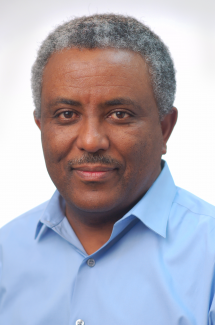The Joint Center for Earth Systems Technology (JCET) was formed under a Cooperative Agreement between the Earth Science Division of NASA Goddard Space Flight Center (GSFC) and the University of Maryland, Baltimore County (UMBC) in 1995. The JCET family consists of its business staff, students, research faculty, GSFC Sponsors, appointed fellows, and affiliated tenured/tenure-track faculty. JCET is an innovative center where these scientists interact in a seamless fashion with the support of an efficient business and administrative unit.
A central requirement of JCET is the integration of the faculty into the academic life of the University. JCET faculty members are strongly encouraged to affiliate with academic departments and contribute to the overall teaching and research undertaken at UMBC. These contributions can take the form of mentoring graduate and undergraduate students, serving on thesis and dissertation committees, or working with faculty on research themes that align with NASA’s Earth Science topics. Affiliated JCET faculty are urged to teach every other year and/or to be active in advising students. JCET faculty may be affiliated and teach in Physics, Geography and Environmental Systems, Chemistry and Biochemistry, Mathematics/Statistics, Computer Science, and Engineering. JCET’s major academic contribution to UMBC includes the leadership in the formation of UMBC’s Atmospheric Physics Program and substantial contribution to the Geography and Environmental Systems new Graduate Program. Graduate students in JCET work both at the UMBC campus and on-site at the Goddard Space Flight Center.
JCET faculty are active researchers serving as Principal Investigators on funded research, providing service to the scientific community through peer review roles on the various committee (such as thesis, dissertation, journals, proposals, and review committees), and they have the opportunity to develop and teach coursework, advise graduate and undergraduate students. These are the main attributes that make them highly marketable as future university professors or research lab leaders. In summary, JCET is a collection of highly innovative and valued scientists in a university that is rated one of the “most innovative” and “forward-looking” schools in the nation!
What makes UMBC’s Joint Center for Earth Systems Technology (JCET) ‘special’?
The JCET’s “extended family” consists of its University business staff, students, research faculty, NASA Goddard Space Flight Center (GSFC) sponsors, appointed fellows, and affiliated tenured/tenure-track faculty at both of the UMBC and GSFC campuses. JCET is an innovative research center where these scientists interact internationally, nationally, and locally in a seamless fashion supported by an efficient business and administrative unit.
A central requirement of JCET’s mission is the integration of the faculty into the academic life of the University. JCET faculty members are strongly encouraged to affiliate with academic departments and contribute to the overall teaching and research undertaken at UMBC. These contributions can take the form of mentoring graduate and undergraduate students, serving on thesis and dissertation committees, or working with faculty on research themes that align with NASA’s Earth Science topics. Affiliated JCET faculty are encouraged to teach every other year and/or to be active in advising undergraduate or graduate students. JCET faculty may be affiliated and teach in multiple Departments at UMBC. Graduate students in JCET can work both at the UMBC campus and on-site within the Laboratories of JCET Faculty at GSFC as circumstances permit.
JCET faculty are active scientific researchers serving as Principal Investigators on funded research, providing service to their scientific communities through peer review roles on various committees (such as thesis, dissertation, journals, proposals, and review committees). Further, they have the opportunity to develop and teach coursework, advise graduate and undergraduate students. Through the JCET ‘family’, these are the main attributes that make them highly marketable as future university professors or academic, even civil service, research lab leaders. In summary, JCET is a collection of highly innovative, active, creative, and valued scientists within a university that is rated one of the “most innovative” and “forward-looking” schools in the nation!
The Joint Center for Earth Systems Technology (JCET) was formed under a Cooperative Agreement between the Earth Science Division of NASA Goddard Space Flight Center (GSFC) and the University of Maryland, Baltimore County (UMBC) in 1995.
As the Director of JCET, it is my pleasure to welcome you to the JCET website. If there is information you do not find on these pages, please feel free to contact me or call the JCET office at 410.455.8812.

Belay B. Demoz
Professor of Physics and Director